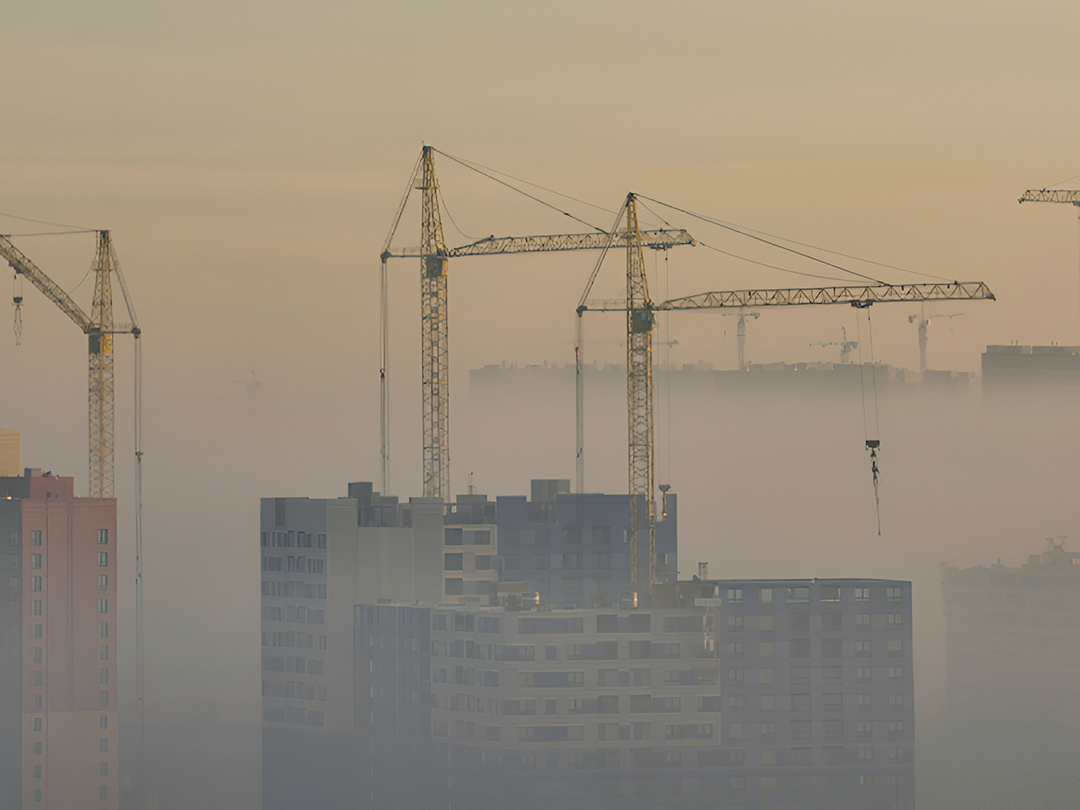Listen To The Article
The construction ban seems to have caused problems for builders, buyers, and workers. The whole Delhi NCR region is facing severe air pollution problem and so the ban imposed.
Due to air pollution guidelines, the construction ban in Delhi NCR has had a severe impact on the real estate sector. The delivery of homes is anticipated to be delayed by five to six months as a result of the ban.
Workers in the real estate industry, which mostly pays unskilled labourers on a daily basis, are left with uncertainty because they are temporarily unemployed and do not have salaries to rely on. Many of them are obliged to migrate to their villages in order to survive because of this predicament.
Furthermore, other associated industries that provide materials to the construction industry such as cement, steel, marble, furniture, tiles, fittings, and ceramics are also impacted by the construction ban.
“Since the movement of diesel vehicles has also disrupted the supply chain, developers have asked suppliers to put orders on hold,” said a few developers who were contacted by CNBC-TV18 but who wished to remain anonymous.
Impact Of Construction Ban On Real Estate Delivery Timelines
More than lakhs of labours have already migrated from the region, and it remains uncertain for developers to provide them any certain timeline, as they themselves do not know when the guidelines will ease.
In the meantime, the entire Delhi-NCR region has up to 3,27,500 housing units in various phases of construction, according to Anarock study. These units were all introduced in 2013 and later.
Approximately 125,000 of the total are being built in Noida and Greater Noida, roughly 123,500 in Gurugram, and the rest 79,000 units are spread across other areas including Delhi, Bhiwadi, Ghaziabad, and Faridabad, according to Anuj Puri, Chairman of ANAROCK Group.
Periodic construction restrictions, like the one in the National Capital Region (NCR), are a serious response to poor air quality. A one-month suspension of all construction activities typically results in a minimum three- to four-month delay in a project.
Unemployment Woes For Real Estate Workers Due To Construction Ban
“The Delhi administration has put an end to construction projects in Delhi due to the deteriorating air quality in New Delhi. The timely completion of projects will undoubtedly be impacted if this prohibition lasts for a long time.
Having said that, the yearly occurrence of this intermittent prohibition has led many developers to account for the delay that the construction ban will impose. Thus, Puri continued, “their project delivery timelines do take this annual construction ban into account.”
In a similar vein, Housing.com CFO Vikas Wadhwan revealed, “The real estate industry faces a significant challenge from the recent construction bans in Delhi NCR, which are intended to reduce air pollution.”
These regulations hurt consumers even though they are vital for the country and the environment. Homebuyers are put under pressure by project delays, and developers are forced to extend loans and take on more debt.
Migration Trends And Uncertainty In The Real Estate Sector
We can lead in sustainable growth without sacrificing our environmental duties if we take inspiration from China’s proactive approach to addressing environmental concerns. State agencies should come together to identify solutions that strike a balance between the protection of the environment and the growth of the real estate sector.
A peaceful ecology may be created for all stakeholders via cooperative efforts and creative thinking, he continued. The founder of Intygrat, Shri Venket Rao, stated: “The construction prohibition creates a dilemma with ripple effects, even if it is essential to reduce the nation’s capital’s rising pollution levels.
Its average one-month levy makes for a dramatic delay that affects both builders and homebuyers by essentially extending project timetables by at least two to three months. Even with the seriousness of the issue, it is becoming more and more clear that soft activities that are not linked to pollution contributions are necessary in order to carry on with construction.
But the depressing truth becomes apparent: although the government makes resolute promises to reduce pollution, genuine progress is still difficult to achieve. Our ongoing problem calls for quick fixes that are also long-lasting.
Source-CNBC-TV18




